Top 10 Things Attracting Spiders to Your House
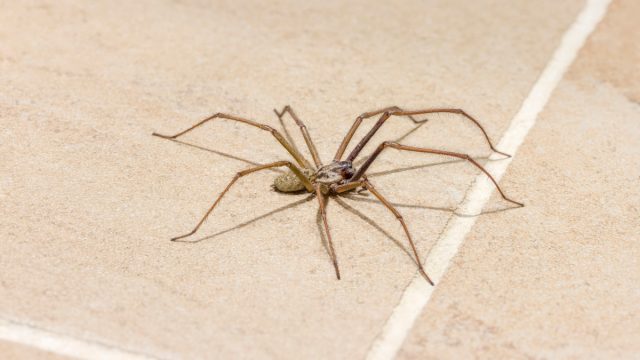
Whether you’re profoundly arachnophobic or generally insect-averse, finding a spider in your house is not a good feeling. Of course, spiders are great for cutting back on pesky bugs like mosquitoes and flies in your garden, but this doesn’t bring much comfort when they’ve taken up residence in your living space—especially if they’re potentially venomous. Fortunately, it’s still possible to keep your home arachnid-free with minimal effort. Read on to hear straight from pest experts about what attracts spiders in the house—and how to keep them out for good.
RELATED: “Very Large” New Spider Species Discovered—Here’s Where There May Be Hiding.
1
Bright outdoor lighting
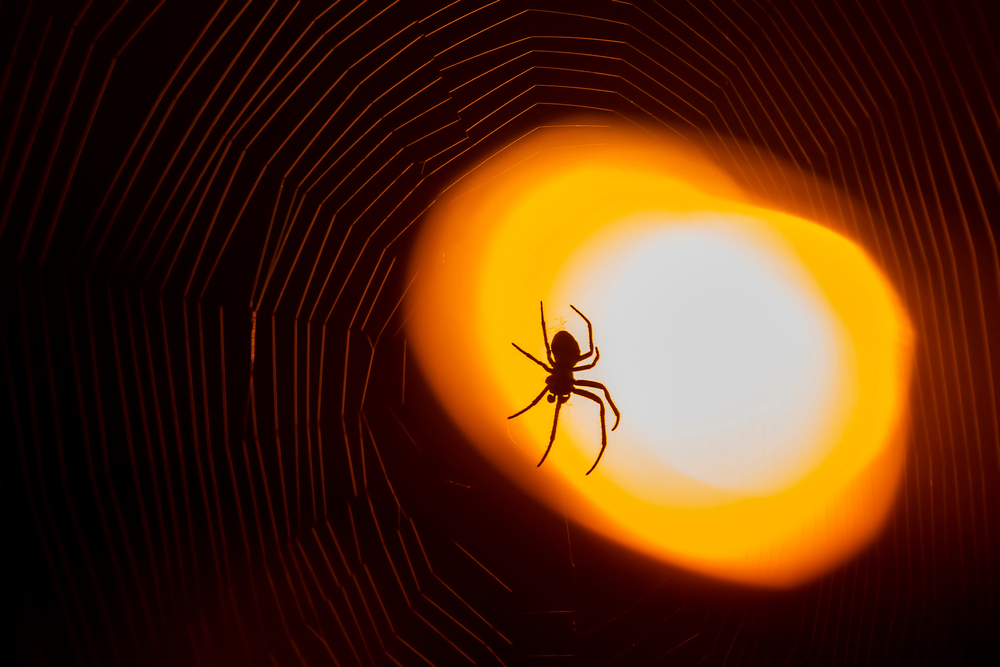
At the very least, we use exterior lighting to help pull into the driveway and walk to the front door after dark. Unfortunately, this can also draw in spiders looking for their next meal—especially if you’re turning your house into a bright beacon at night.
“Spiders are attracted to light, so outdoor fixtures can draw them in from the outside,” says Jim Skinner of A&C Pest Management. “If you have exterior lights that attract many bugs, this is likely a contributing factor to higher spider populations in and around your home. Consider switching to yellow-tinted lights or using motion sensor lights that are activated only when necessary.”
2
Cracks or crevices in your walls
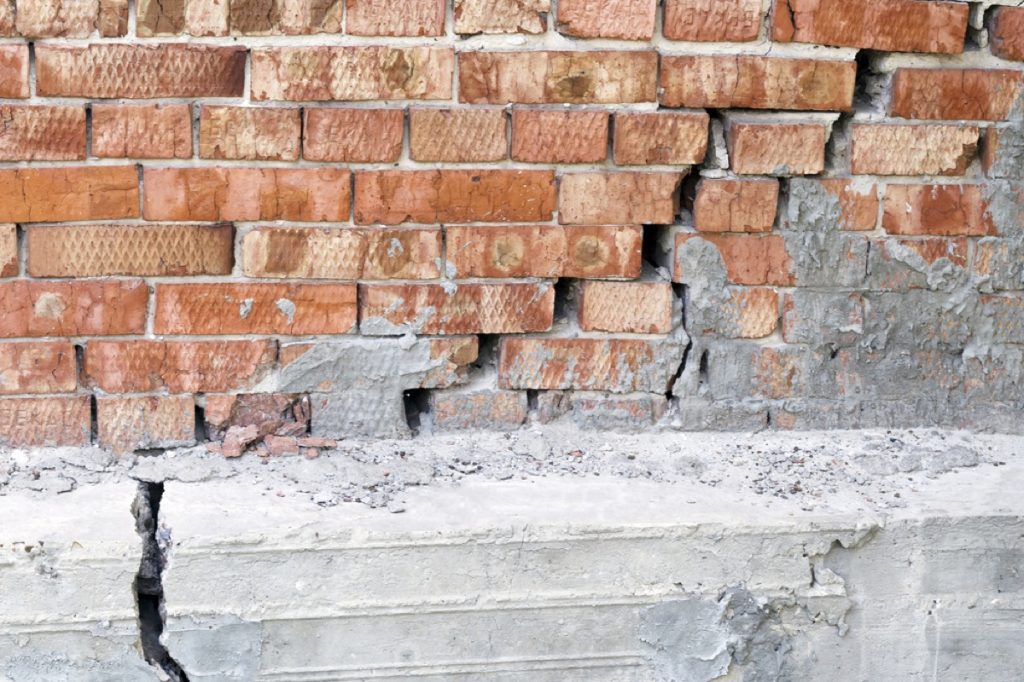
All homes require regular upkeep, from making sure the roof isn’t leaking to checking in on the status of your foundation. Besides keeping your home warmer, experts say patching up those hard-t0-see holes will also keep spiders outside where they belong.
“One of the less obvious ways you can be inviting spiders into your home is by having cracks or crevices in walls or windowsills. Spiders are able to crawl through these tiny gaps, which gives them easy access to your living space,” says Ken Unger, president of Suburban Pest Control. “If you notice any cracks or crevices around entryways, it’s important that you seal them up.”
3
Another pest problem
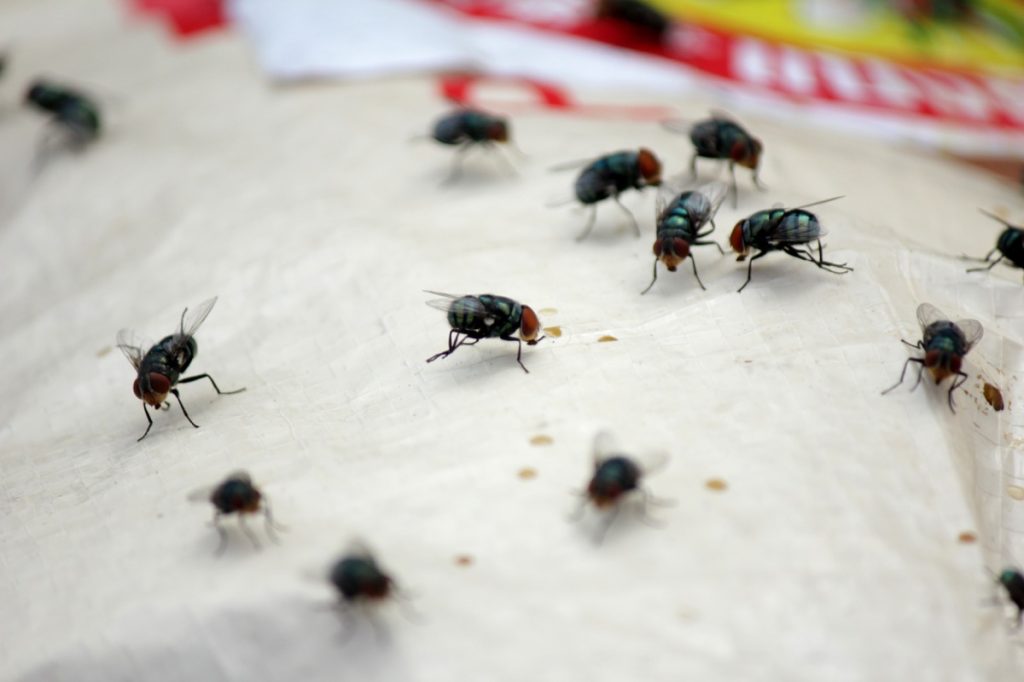
Spiders will only stick around someplace where they know they can get a good meal.
“The presence of insects and other prey in homes is a common reason for spiders to come inside,” Glen Ramsey, BCE, senior technical services manager for pest control company Orkin, tells Best Life.
The best way to keep the bugs away usually involves taking care of your trash promptly—especially your food waste. If you notice the problem isn’t improving, you should consider calling a professional pest services company to help.
RELATED: 9 Cleaning Habits That Attract Spiders.
4
Outdoor plants
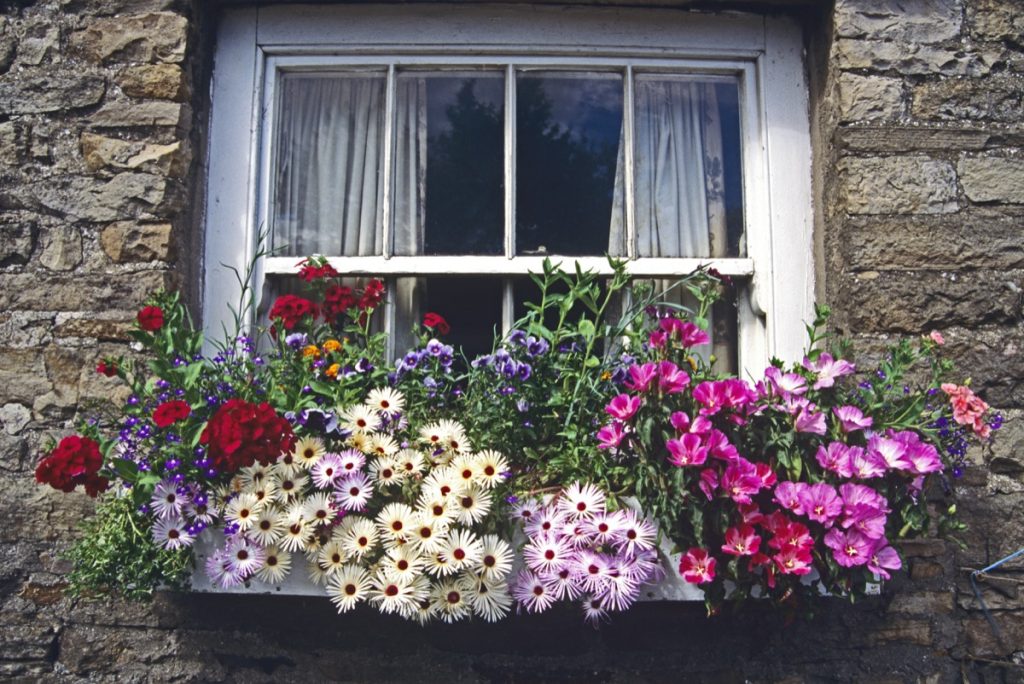
Having a lush lawn with plenty of bushes and flowers can be a fantastic way to brighten up your home and draw attention to your property. Unfortunately, keeping vegetation so close to your exterior walls can also be an open invitation for spiders.
“You should also remove any plants near the outside walls of your house,” Ransford Pest Control‘s Maria Richmond tells Best Life. “This includes vines and windowsill plant shelves because these are well known to attract spiderwebs.”
5
Houseplants
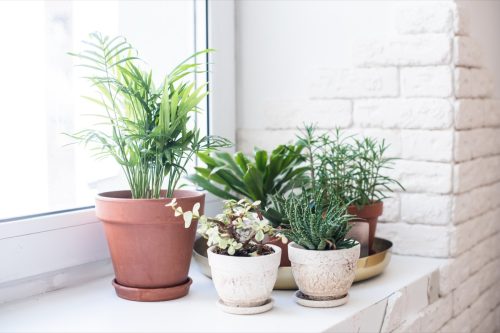
Indoor plants can also pose a spider problem.
“Houseplants provide an ideal environment for spiders in terms of shelter,” Alex Altizer, owner of Eastside Exterminators, tells Best Life. “We don’t move or touch our plants a lot, so they make a great spot for them to hide and build a nest—especially if the plants have a lot of leaves.”
This can be especially true if you don’t keep up with their maintenance. “If you have lots of potted plants and foliage around the house where spiders love to build webs, it’s time to clear and prune,” says Jordan Foster, a pest expert with Fantastic Pest Control.
In addition, overwatering your houseplants can attract an infestation of bugs such as fungus gnats, whiteflies, thrips, and mealybugs. These conditions can harm your houseplant outright and essentially turn them into a hunting ground for spiders, Josh Baker, chief administrative officer at Triangle Pest Control, tells Best Life.
6
Cozy corners
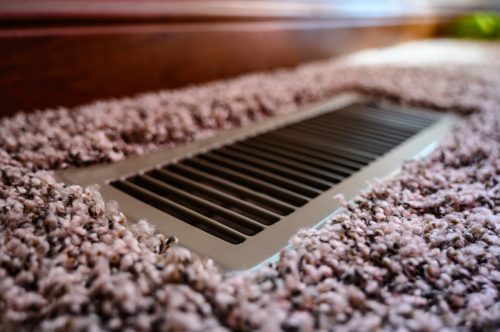
“Spiders are cold-blooded creatures, meaning they seek warmth to regulate their body temperature,” explains Lorne Hanewich, corporate trainer at Clark’s Termite & Pest Control.
Therefore, Hanewich notes that “warm and cozy corners,” often near heating vents or appliances, are the perfect place for spiders to set up.
“Regularly vacuuming and cleaning these areas can deter them from making themselves at home,” suggests Hanewich.
Besides getting down low on your hands and knees to get the spaces under furniture clean, you might also want to consider getting out your step ladder. The hard-to-reach corners in rooms are a perfect place for spiders to spin their webs, often making them one of the spots they’ll congregate when they’re left untouched.
7
Moisture and humidity
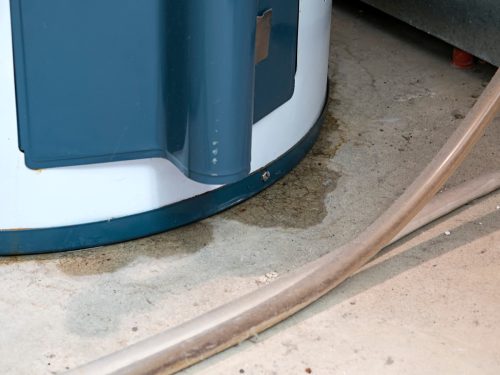
As mentioned, spiders seek out warm hiding spots, but they’re also “attracted to areas with high humidity levels,” says Hanewich.
“Damp basements, leaky pipes, or poorly ventilated spaces can create the ideal conditions for spiders to thrive,” Hanewich notes. “Ensuring proper ventilation and promptly fixing leaks can help reduce the moisture that attracts these eight-legged intruders.”
RELATED: 8 Foods That Are Attracting Mice Inside Your Home.
8
Open windows and doors
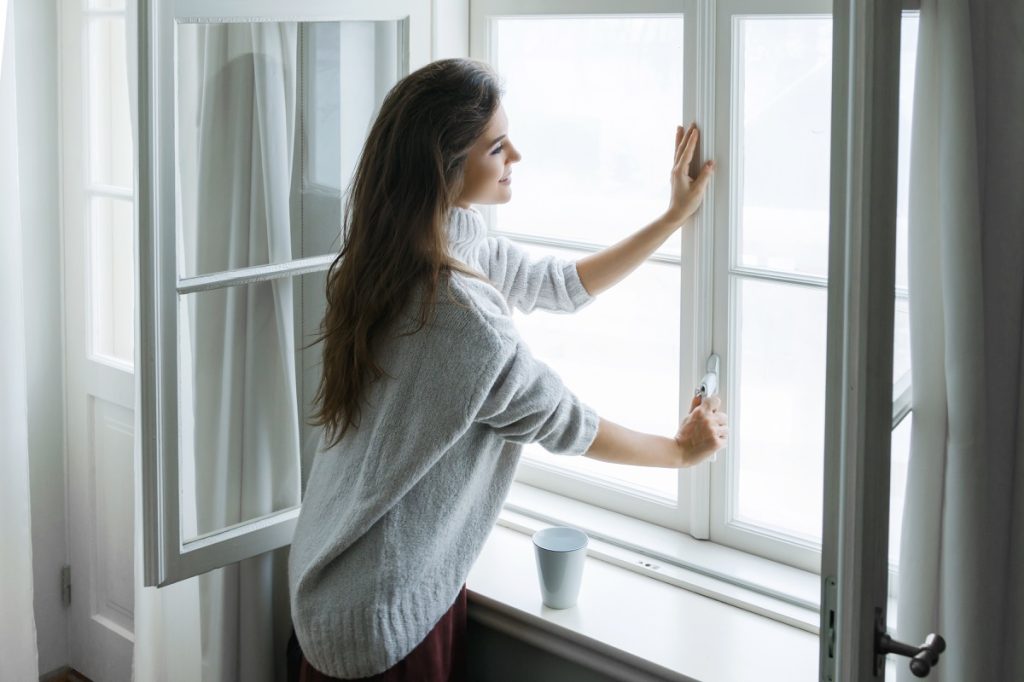
There’s nothing like keeping your home smelling fresh and feeling cool with a steady outdoor breeze. But if you’re leaving your windows wide open, you’re opening up your home for an arachnid invasion.
“While natural ventilation is great for homes, it also gives spiders an easy access point,” says Skinner. “Make sure to screen all windows and doors with tight-fitting grids or mesh screens to keep spiders from entering.”
9
Clutter

Even if you’re not the tidiest person, no one likes a messy house—except, perhaps, for spiders. Experts warn that besides being unsightly, an unkempt home can make it more likely that arachnids will want to hang around, particularly if they’re in out-of-the-way areas like basements or attics.
“Spiders love cluttered areas because they provide plenty of hiding spots and places to spin their webs,” explains Skinner. This includes piles of laundry, whether dirty or clean.
“To reduce spider activity in your home, make sure to keep all floors, closets, and basements free from chaotic messes,” Skinner adds.
10
Infested items
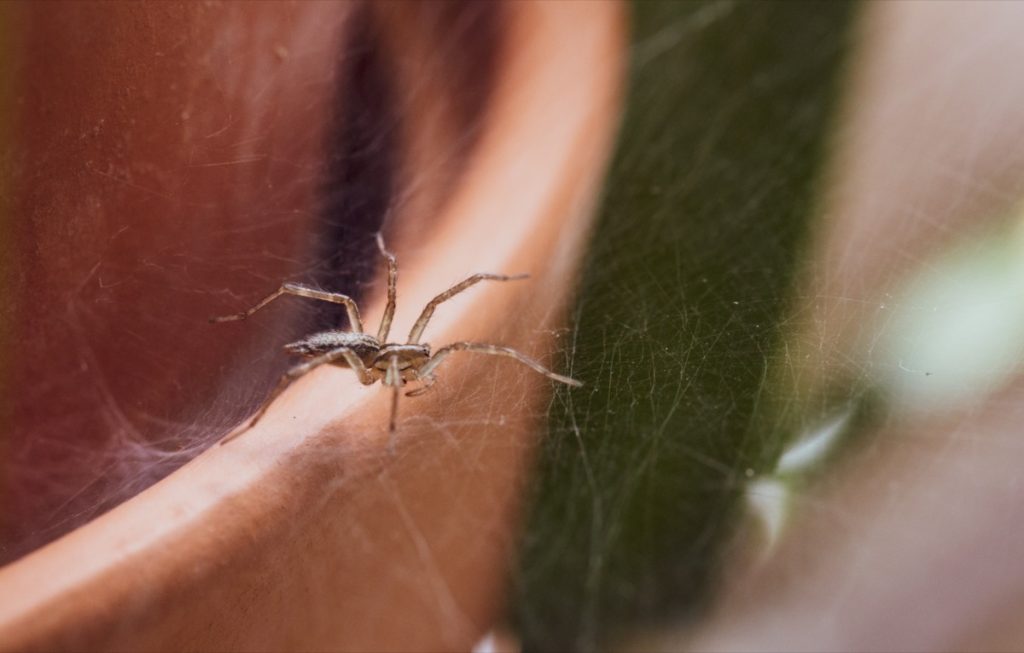
Not all intruders have to break their way into your home. In some cases, bugs can stow themselves away in everyday objects and wind up being brought in accidentally.
“Spiders are also unknowingly introduced to the home’s interior by bringing in infested items,” explains Ramsey. “This includes things such as plants, firewood, clothing, and other items stored in attics, basements, or other storage areas.”
If you’re concerned, Ramsey says it’s best to store your seasonal clothing items in sealed plastic containers or space bags and to shake them out someplace outdoors to ensure no arachnids are working their way in.
If you do encounter a spider problem in your house, it’s best to “contact a pest control professional who can assess the situation and recommend a customized treatment plan,” advises Ramsay. “If you let spiders overstay their welcome, they can lay eggs in your home which will eventually multiply your spider infestation.”
For more pest advice delivered straight to your inbox, sign up for our daily newsletter.